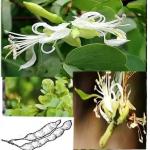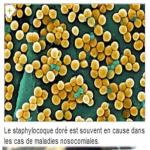Halitose Mauvaise Haleine Cause Diagnostic Traitement Halitose
What is halitosis?
Halitosis is bad breath causing a strong odour coming out of the mouth when exhaling or talking. The bad smell often comes from inside the mouth. Bad breath comes from volatile sulphur compounds (VSC) that form in the mouth or colon when food debris decomposes. When teeth and tongue are not properly brushed, food debris can remain nested in the oral cavity and macerate, which encourages the proliferation of bacteria and the production of these volatile sulphur compounds, which are responsible for bad breath," explains Dr. Edmond Binhas, dental surgeon and president of the Dentéon Santé group.
Fester's breath or Halitosis
Halitosis is also known as foul breath, but for some people it is known simply as "bad breath". Although it is a relatively minor health problem, bad breath can be a source of distress and a real social handicap. We spend millions every year trying to freshen our breath with different gums, sprays and mouthwashes without satisfaction. In the following lines you will read how to treat this disease, its causes, symptoms and some tips on how to get rid of it.
HALITOSIS TREATMENT HALITOSIS REMEDY
The manufacturers of mints and mouthwashes have created a real industry based on the desire for fresh breath. These products guarantee the freshness and "minty smell" of your breath. However, in the best of cases, they will only help you temporarily control your breath. In fact, many products contain sugar and alcohol. These ingredients cause tooth decay or dry mouth and aggravate certain oral conditions. Good oral hygiene and regular visits to the dentist are essential and are the most effective methods of fighting bad breath.
Note: Please read the whole page while clicking on the coloured words to go further. Please click on all links. A link contains valuable information such as a recipe, a coupon code or other useful information. Click on the links while remaining on the page. Please be sure to return to the page.
THE CAUSES OF HALITOSIS
Food is the most common cause of bad breath. Garlic, onions, some fish and diets high in fat and meat lead to halitosis. Saliva and bacteria normally present in the mouth break down small pieces of food stuck between the teeth. This results in the release of volatile substances or chemicals that cause bad breath.
The body's breakdown products of proteins used for energy are exhaled from the lungs. Therefore, skipping meals, hunger, fasting and low-calorie diets can also cause bad breath odour.
As there is no flow of saliva during sleep, putrefaction (decomposition or rotting) of saliva and debris in the mouth can lead to bad breath in the morning.
OTHER CAUSES HALITOSIS
The causes of halitosis can also be linked:
Tobacco consumption
To the consumption of alcohol
Periodontal diseases that loosen the teeth and create pockets in the gums; these pockets harbour bacteria and generate bad breath ;
Chronic sinus or lung infections;
Breathing through the mouth due to swelling of the adenoids or tonsils;
Oral infections, such as thrush (candidiasis);
Systemic diseases, such as diabetes, liver disease or kidney disorders;
Pregnancy;
Dry mouth;
Taking certain medications can also trigger bad breath, especially those that cause reduced saliva flow and dry mouth: antidepressants, antipsychotics, antihistamines, decongestants and high blood pressure medications. This is why it is advisable to carry out medical treatments with herbal teas made from African medicinal plants.
HOW DO YOU KNOW YOU HAVE HALITOSIS?
People suffering from halitosis may not realise it, which makes it difficult to put in place appropriate solutions, says Dr Binhas. One of the first warning signs is the lingual coating, which is a whitish deposit on the top of the tongue. A healthy tongue should be light pink in colour, if it is whitish, it is not brushed well enough and there is a risk of bacterial proliferation.
Alternatively, you can lick your wrist, let it dry for a few seconds and feel this area. You can also put your hands out and smell your own breath. If you need further advice, ask a friend or family member, or even consult an herbalist.
Brush your teeth at least twice a day and floss once a day.
Gently clean your tongue before going to bed by scraping it with a plastic mouth spatula or by rubbing it gently.
Avoid hungry breath by eating your meals at regular times. Take time to eat and avoid skipping meals.
Proceed to a more thorough cleaning than a simple regular brushing. Ask your dentist to recommend a specific cleaning system.
Clear your nose and sinuses
Stimulate your saliva flow with citrus fruits (oranges and lemons) or with sugar-free candy or chewing gum containing citric acid.
Eat more fibre-rich foods. Chew fibrous vegetables such as raw carrots or celery to stimulate the flow of your saliva.
Drink at least 8 glasses of water a day to moisten your mouth and help eliminate odour-causing bacteria.
Drink less alcohol and coffee
Rinse and gargle with an effective mouthwash.
QUELQUES CONSEILS POUR ELIMINER LA MAUVAISE HALEINE ou Halitose
Add a comment








